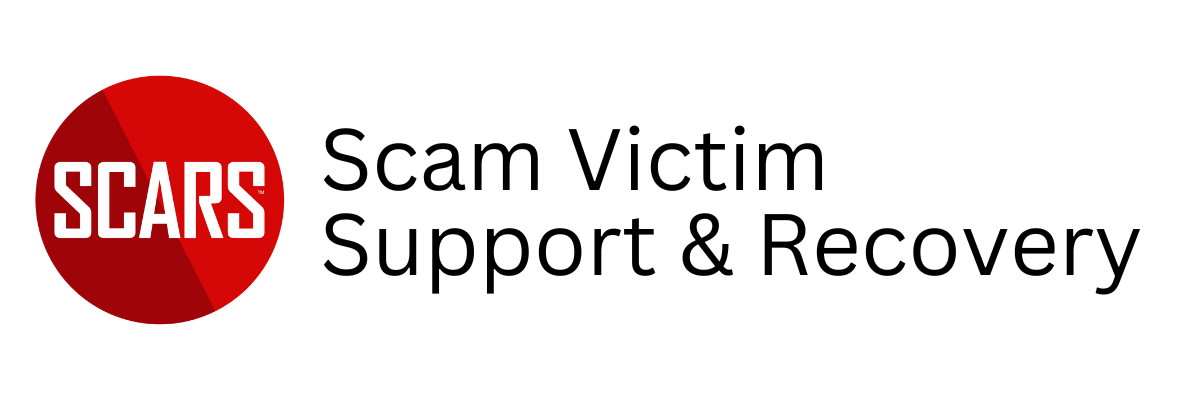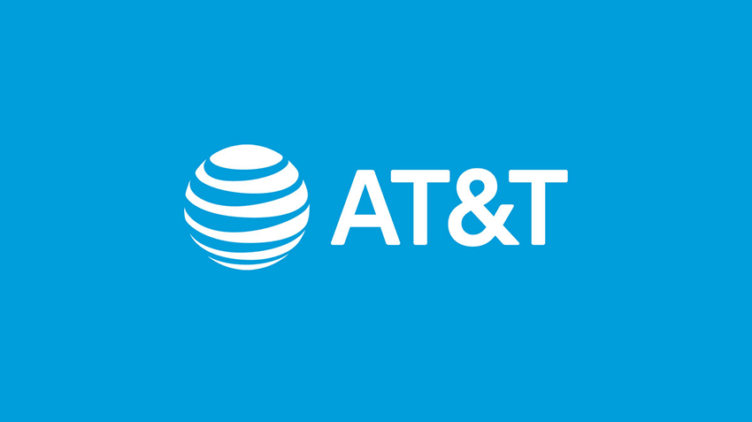Feeling Overwhelmed and Overloaded in the Initial Months After the Scam
Helping Scam Victims Understand How Overwhelming the Process of Recovery Can Be!
Primary Category: Scam Victim Recovery Psychology
Authors:
• Vianey Gonzalez B.Sc(Psych) – Licensed Psychologist, Specialty in Crime Victim Trauma Therapy, Neuropsychologist, Certified Deception Professional, Psychology Advisory Panel & Director of the Society of Citizens Against Relationship Scams Inc.
• Tim McGuinness, Ph.D., DFin, MCPO, MAnth – Anthropologist, Scientist, Polymath, Director of the Society of Citizens Against Relationship Scams Inc.
About This Article
After becoming a scam victim, individuals often face overwhelming emotional and psychological turmoil in the initial months, severely limiting their ability to manage daily tasks. Emotionally, victims experience intense feelings like anger, guilt, and fear, while psychologically, they may struggle with anxiety, hypervigilance, and depression. Neurologically, trauma can disrupt brain functions, leading to heightened anxiety and difficulties in rational thinking and memory.
To stay grounded and overcome feelings of overload, victims should acknowledge their emotions, seek support, practice mindfulness, set small goals, limit exposure to triggers, take care of their bodies, educate themselves about scams, stay connected socially, use technology wisely, and seek professional help if needed. Recovery is a gradual process requiring patience and small, achievable steps to regain normalcy and emotional stability.
Note: This article is intended for informational purposes and does not replace professional medical advice. If you are experiencing distress, please consult a qualified mental health professional.

Emotional Bandwidth After Becoming a Scam Victim: Understanding and Coping
Overwhelmed and Overloaded: The Initial Months
Becoming the victim of a scam is a harrowing experience that leaves individuals feeling overwhelmed and emotionally overloaded. In the first few months after the incident, the number of things one can handle diminishes significantly. Simple daily tasks become monumental challenges, and the emotional and psychological toll can be profound. The victim’s mind is a whirlwind of confusion, fear, and self-blame, making it difficult to stay grounded.
Emotional and Psychological Impact
Emotionally, scam victims often experience a roller coaster of feelings, including anger, sadness, guilt, and embarrassment. These intense emotions can lead to mood swings and emotional exhaustion. The breach of trust inherent in scams leaves victims feeling vulnerable and betrayed, impacting their ability to trust others, including themselves.
Psychologically, victims may struggle with symptoms of trauma. Anxiety and hypervigilance are common as they constantly worry about the potential for further victimization. Depression can also set in, characterized by feelings of hopelessness and a pervasive sense of loss. Cognitive distortions, such as blaming oneself for falling victim to the scam, can exacerbate these feelings and hinder recovery.
Neurological Responses
Neurologically, the brain’s response to trauma is complex. The amygdala, the brain’s fear center, becomes hyperactive, leading to heightened anxiety and stress responses. This hyperactivity can disrupt the functioning of the prefrontal cortex, which is responsible for rational thinking and decision-making, making it difficult to process what happened logically and to plan for the future. Additionally, the hippocampus, which is involved in memory formation, can be affected, leading to intrusive memories of the scam and difficulties in forming new, positive memories.
Tips for Staying Grounded
Acknowledge Your Feelings: It’s crucial to recognize and accept your emotions. Denying or suppressing feelings can lead to greater emotional distress.
Seek Support: Talk to friends, family, or a therapist about your experience. Support providers, both in-person and online such as SCARS Institute, can provide a sense of community and understanding. Visit support.AgainstScams.org to sign up for free support, and www.SCARSeducation.org to enroll in SCARS Scam Survivor’s School for your recovery.
Practice Mindfulness: Techniques such as meditation, deep-breathing exercises, and grounding exercises can help manage anxiety and keep you connected to the present moment.
Set Small Goals: Break tasks into manageable steps and celebrate small victories. This can help rebuild confidence and a sense of control.
Limit Exposure to Triggers: Identify and limit your exposure to people, places, or activities that trigger distressing memories of the scam.
Take Care of Your Body: Regular exercise, a healthy diet, and adequate sleep are essential for maintaining overall well-being and reducing stress.
Educate Yourself: Learning about scams and how they operate can help you regain a sense of control and reduce feelings of helplessness. This is what SCARS Scam Survivor’s School is all about – enroll at www.SCARSeducation.org
Stay Connected: Maintain social connections and engage in activities that bring you joy and fulfillment. Isolation can worsen feelings of depression and anxiety.
Use Technology Wisely: Be cautious with online interactions and protect your personal information. Consider using identity theft protection services.
Seek Professional Help: If feelings of overwhelming persist, consider seeking professional help. Therapists trained in trauma and cognitive-behavioral therapy can provide strategies to manage emotions and rebuild your life. To find a counselor or therapist visit counseling.AgainstScams.org
Overcoming Feelings of Overload
It is important to recognize that recovery is a process and that it’s okay to feel overwhelmed is essential.
Take one day at a time, and focus on small, achievable steps to regain your sense of normalcy. Building a routine and sticking to it can provide structure and predictability, which are comforting during times of emotional upheaval. Avoid making major life decisions during the initial recovery period, and give yourself permission to rest and heal.
Also, when you feel overwhelmed stop what you were doing and take a break. Show yourself some grace. You will get there!
Summary
In conclusion, the emotional bandwidth of scam victims is severely strained in the aftermath of the experience. By understanding the emotional, psychological, and neurological impacts and implementing strategies to stay grounded, victims can gradually overcome feelings of overload and work towards recovery. Remember, it’s a journey, and seeking support is a sign of strength, not weakness.
It’s OK to feel overwhelmed. Here’s what to do next – from the Pandemic Days!
If you’re feeling anxious or fearful during the coronavirus pandemic, you’re not alone. Offering hope and understanding, author Elizabeth Gilbert reflects on how to stay present, accept grief when it comes and trust in the strength of the human spirit. “Resilience is our shared genetic inheritance,” she says. (This virtual conversation is part of the TED Connects series, hosted by head of TED Chris Anderson and head of curation Helen Walters. Recorded April 2, 2020)
An ER doctor on triaging your “crazy busy” life
How do doctors in the emergency room stay calm and focused amidst the chaos? Drawing on years of experience, ER doctor Darria Long shares a straightforward framework to help you take back control and feel less overwhelmed when life starts to get “crazy busy.”
-/ 30 /-
What do you think about this?
Please share your thoughts in a comment below!
Statement About Victim Blaming
SCARS Institute articles examine different aspects of the scam victim experience, as well as those who may have been secondary victims. This work focuses on understanding victimization through the science of victimology, including common psychological and behavioral responses. The purpose is to help victims and survivors understand why these crimes occurred, reduce shame and self-blame, strengthen recovery programs and victim opportunities, and lower the risk of future victimization.
At times, these discussions may sound uncomfortable, overwhelming, or may be mistaken for blame. They are not. Scam victims are never blamed. Our goal is to explain the mechanisms of deception and the human responses that scammers exploit, and the processes that occur after the scam ends, so victims can better understand what happened to them and why it felt convincing at the time, and what the path looks like going forward.
Articles that address the psychology, neurology, physiology, and other characteristics of scams and the victim experience recognize that all people share cognitive and emotional traits that can be manipulated under the right conditions. These characteristics are not flaws. They are normal human functions that criminals deliberately exploit. Victims typically have little awareness of these mechanisms while a scam is unfolding and a very limited ability to control them. Awareness often comes only after the harm has occurred.
By explaining these processes, these articles help victims make sense of their experiences, understand common post-scam reactions, and identify ways to protect themselves moving forward. This knowledge supports recovery by replacing confusion and self-blame with clarity, context, and self-compassion.
Additional educational material on these topics is available at ScamPsychology.org – ScamsNOW.com and other SCARS Institute websites.
-/ 30 /-
What do you think about this?
Please share your thoughts in a comment below!
SCARS LINKS: AgainstScams.org RomanceScamsNOW.com ContraEstafas.org ScammerPhotos.com Anyscam.com ScamsNOW.com
reporting.AgainstScams.org support.AgainstScams.org membership.AgainstScams.org donate.AgainstScams.org shop.AgainstScams.org
youtube.AgainstScams.org linkedin.AgainstScams.org facebook.AgainstScams.org
Important Information for New Scam Victims
- Please visit www.ScamVictimsSupport.org – a SCARS Website for New Scam Victims & Sextortion Victims.
- SCARS Institute now offers its free, safe, and private Scam Survivor’s Support Community at www.SCARScommunity.org – this is not on a social media platform, it is our own safe & secure platform created by the SCARS Institute especially for scam victims & survivors.
- SCARS Institute now offers a free recovery learning program at www.SCARSeducation.org.
- Please visit www.ScamPsychology.org – to more fully understand the psychological concepts involved in scams and scam victim recovery.
If you are looking for local trauma counselors, please visit counseling.AgainstScams.org
If you need to speak with someone now, you can dial 988 or find phone numbers for crisis hotlines all around the world here: www.opencounseling.com/suicide-hotlines
Statement About Victim Blaming
Some of our articles discuss various aspects of victims. This is both about better understanding victims (the science of victimology) and their behaviors and psychology. This helps us to educate victims/survivors about why these crimes happened and not to blame themselves, better develop recovery programs, and help victims avoid scams in the future. At times, this may sound like blaming the victim, but it does not blame scam victims; we are simply explaining the hows and whys of the experience victims have.
These articles, about the Psychology of Scams or Victim Psychology – meaning that all humans have psychological or cognitive characteristics in common that can either be exploited or work against us – help us all to understand the unique challenges victims face before, during, and after scams, fraud, or cybercrimes. These sometimes talk about some of the vulnerabilities the scammers exploit. Victims rarely have control of them or are even aware of them, until something like a scam happens, and then they can learn how their mind works and how to overcome these mechanisms.
Articles like these help victims and others understand these processes and how to help prevent them from being exploited again or to help them recover more easily by understanding their post-scam behaviors. Learn more about the Psychology of Scams at www.ScamPsychology.org
SCARS INSTITUTE RESOURCES:
If You Have Been Victimized By A Scam Or Cybercrime
♦ If you are a victim of scams, go to www.ScamVictimsSupport.org for real knowledge and help
♦ SCARS Institute now offers its free, safe, and private Scam Survivor’s Support Community at www.SCARScommunity.org/register – this is not on a social media platform, it is our own safe & secure platform created by the SCARS Institute especially for scam victims & survivors.
♦ Enroll in SCARS Scam Survivor’s School now at www.SCARSeducation.org
♦ To report criminals, visit https://reporting.AgainstScams.org – we will NEVER give your data to money recovery companies like some do!
♦ Follow us and find our podcasts, webinars, and helpful videos on YouTube: https://www.youtube.com/@RomancescamsNowcom
♦ Learn about the Psychology of Scams at www.ScamPsychology.org
♦ Dig deeper into the reality of scams, fraud, and cybercrime at www.ScamsNOW.com and www.RomanceScamsNOW.com
♦ Scam Survivor’s Stories: www.ScamSurvivorStories.org
♦ For Scam Victim Advocates visit www.ScamVictimsAdvocates.org
♦ See more scammer photos on www.ScammerPhotos.com
You can also find the SCARS Institute’s knowledge and information on Facebook, Instagram, X, LinkedIn, and TruthSocial
Psychology Disclaimer:
All articles about psychology and the human brain on this website are for information & education only
The information provided in this and other SCARS articles are intended for educational and self-help purposes only and should not be construed as a substitute for professional therapy or counseling.
Note about Mindfulness: Mindfulness practices have the potential to create psychological distress for some individuals. Please consult a mental health professional or experienced meditation instructor for guidance should you encounter difficulties.
While any self-help techniques outlined herein may be beneficial for scam victims seeking to recover from their experience and move towards recovery, it is important to consult with a qualified mental health professional before initiating any course of action. Each individual’s experience and needs are unique, and what works for one person may not be suitable for another.
Additionally, any approach may not be appropriate for individuals with certain pre-existing mental health conditions or trauma histories. It is advisable to seek guidance from a licensed therapist or counselor who can provide personalized support, guidance, and treatment tailored to your specific needs.
If you are experiencing significant distress or emotional difficulties related to a scam or other traumatic event, please consult your doctor or mental health provider for appropriate care and support.
Also read our SCARS Institute Statement about Professional Care for Scam Victims – click here
If you are in crisis, feeling desperate, or in despair, please call 988 or your local crisis hotline – international numbers here.
More ScamsNOW.com Articles
A Question of Trust
At the SCARS Institute, we invite you to do your own research on the topics we speak about and publish. Our team investigates the subject being discussed, especially when it comes to understanding the scam victims-survivors’ experience. You can do Google searches, but in many cases, you will have to wade through scientific papers and studies. However, remember that biases and perspectives matter and influence the outcome. Regardless, we encourage you to explore these topics as thoroughly as you can for your own awareness.















![NavyLogo@4x-81[1] Feeling Overwhelmed and Overloaded in the Initial Months After the Scam - 2024](https://scamsnow.com/wp-content/uploads/2025/04/NavyLogo@4x-811.png)










![scars-institute[1] Feeling Overwhelmed and Overloaded in the Initial Months After the Scam - 2024](https://scamsnow.com/wp-content/uploads/2025/04/scars-institute1.png)

![niprc1.png1_-150×1501-1[1] Feeling Overwhelmed and Overloaded in the Initial Months After the Scam - 2024](https://scamsnow.com/wp-content/uploads/2025/04/niprc1.png1_-150x1501-11.webp)